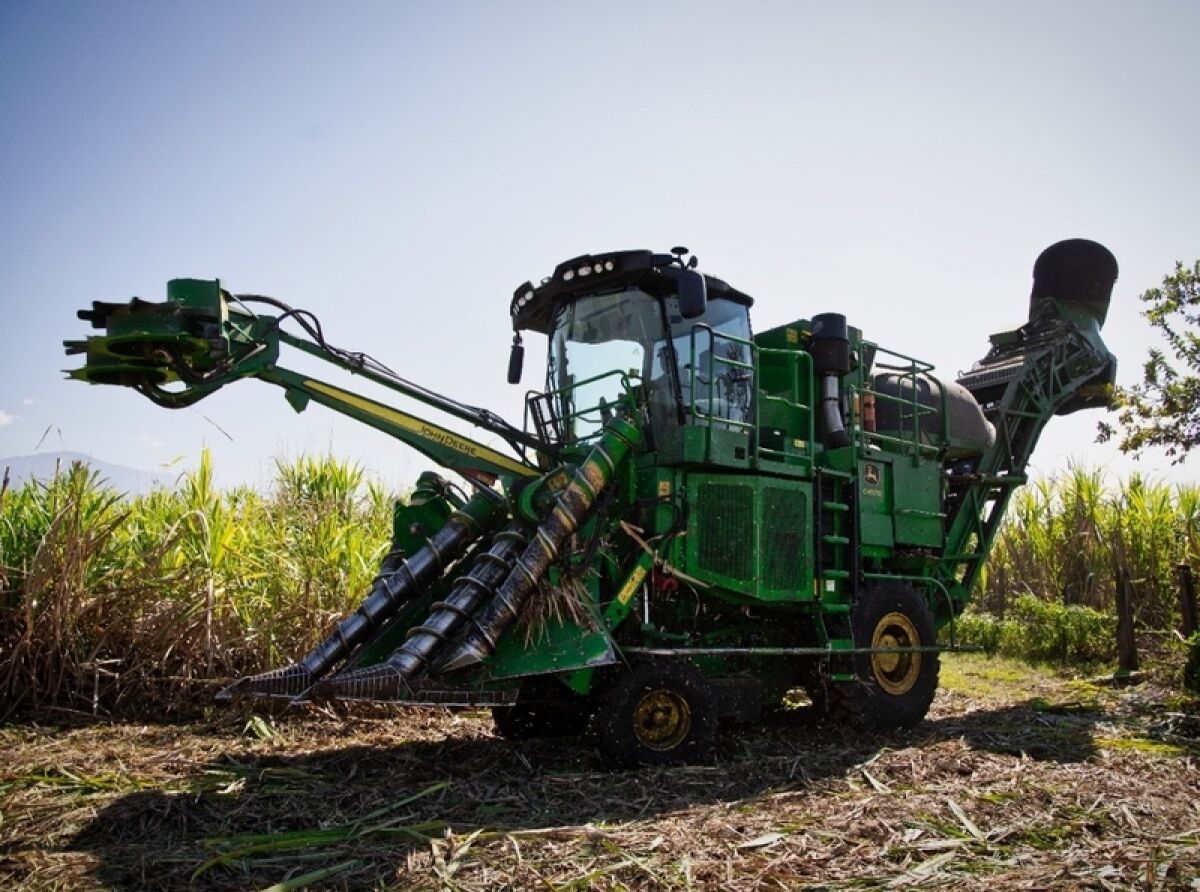In an effort to provide a sustainable path to sugarcane agriculture, the Ministry of Agriculture and Rural Development (SADER Jalisco,) and local sugarcane producers have implemented an investment plan for the mechanization of the activities of the Jalisco sugarcane field.
As a sample is the investment of 45.3 million pesos for the acquisition of machinery for use in the sugarcane field, of which the vast majority are resources contributed by producer organizations; that is, 35.5 million pesos that are borne by this productive sector, while the Government of Jalisco contributes 9.8 million pesos.
This was reported by the head of the agricultural direction of SADER Jalisco, José Refugio Velázquez Vallín, who explained that this fact represents a contribution from producers greater than that made by the public sector in the State Program Mechanization of Cane Cultivation 2021, and is a very remarkable case that the interest of the union advances towards better stages of profitability with a sustainable approach.
“The line of the program is to continue with the sustainable part. In this case, the integration of the waste (sugarcane raw material residues,) and more than anything prevent them from being burned,” the official commented.
The coordinator of the sugarcane production chain of SADER Jalisco, Gerardo Medina Chávez, emphasized that it is very remarkable that the producer groups consider several very important aspects in these investments such as giving priority to soil conservation with the reduction of agricultural burning, using the biomass residues from sugarcane, and the mechanization of harvesting activities in the face of a shortage of cutters due to the competition of other agricultural demands of the growing season.
The organizations participating in this program are:
The Association of Cañeros del Valle de Autlán of the National Confederation of Rural Producers (CNPR.) purchased four shredders. The investments equals 554,000 pesos from the secretariat and the same from the producers.
The Cañeros Association of the CNPR de Tala purchased two collators with an investment of 1,515,000 pesos from the treasury, and 5,500,000 pesos from the union.
The Local Union of Cañeros of the National Peasant Confederation of Tamazula will acquire three collators with an investment of 717,600 pesos by the Secretariats and 8,145,000 pesos from the producers.
The Union of Cane Producers of the CNC, of the Melchor Ocampo mill, purchased a green cane harvester. The investment was 866,000 pesos from SADER-Jalisco and 4,775,000 pesos from those involved.
The Association of Cañeros de Bellavista will purchase a trailer, a tractor, and a shredder with a contribution of 481,000 pesos from the Secretariat and 869,000 pesos from the producers.
The Cañeros Association of the CNPR of the San Francisco de Ameca Sugar Mill will purchase one collator with a contribution of 684,600 pesos from the state sector and 2,275,000 thousand pesos from the interested parties.
The sugarcane producers of the Tala CNC will purchase two collators with an investment of 1,672,000 pesos from the state treasury and 4,501,000 pesos from the organization.
The Local Union of the Casimiro Castillo Sugar Mill purchased six trailers and one collator, and will be acquiring four shredders with an investment of 837,100 pesos from the state and 903,800 from the union and producers.
The Bellavista Local Union will purchase a collator with a mix of resources that amounted to 543,000 pesos from the Secretariat and 2,544,000 pesos from sugarcane growers.
The Local Union of Sugarcane Producers of the Ameca CNC acquired a collator, a waste incorporator, and a packing plant with an investment of 1,027,000 pesos from the treasury and 1,029,000 from the sugarcane union.
The Association of Cañeros de Tamazula of the CNPR will purchase a collator with a mix of 975,000 pesos from the treasury and 2,103,00 thousand from the interested parties.
And the Association of Cañeros de la Costa de Jalisco will purchase a collator with an investment of 323,900 pesos from the state coffers and 2,763,000 pesos from the producers.
Jalisco is the second largest sugarcane producer in the country, only surpassed by Veracruz. The sandy, loamy soil on the coastal plains make the Mexican Pacific coastline perfect for the growing of cane.
The sugar agribusiness has great economic importance in rural Jalisco. Among the sugarcane municipalities of Jalisco are Casimiro Castillo, La Huerta, Cuautitlán de García Barragán, Villa de Purificación, Autlán de Navarro, El Grullo, El Limón, Tamazula, Tecalitlan, Tuxpan, Pihuamo, Zapotiltic, Acatlán de Juárez, Villa Corona, Tlajomulco de Zúñiga, Zacoalco de Torres, Ahualulco de Mercado, Ameca, Antonio de Escobedo, El Arenal, Cocula, Etzatlán, Magdalena, San Marcos, San Martín, Tala and Teuchitlán, among others.

